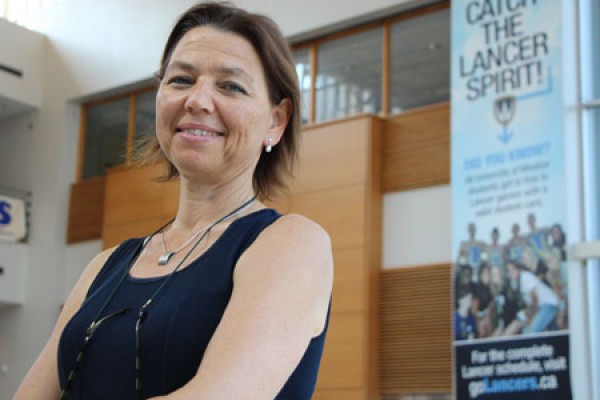 Marijke Taks studies the soci-economic impacts of sports and leisure and says the organizers of the International Children's Games have done an excellent job in engaging the community's assistance in planning the event.
Marijke Taks studies the soci-economic impacts of sports and leisure and says the organizers of the International Children's Games have done an excellent job in engaging the community's assistance in planning the event.
Hosting the International Children’s Games has more potential to create lasting benefits for Windsor than staging a mammoth event like the Olympics or World Cup Soccer, according to a kinesiology researcher who studies the socio-economic aspects of sport and leisure.
“I’m a strong believer that smaller type events, since they are much closer linked to the local community, can create more benefits for the host community than these mega events, which are in a different place every four years,” said human kinetics professor Marijke Taks.
Sanctioned by the International Olympic Committee, the International Children’s Games begin on August 14 and will see more than 1,500 young athletes competing in such sports as swimming, gymnastics, baseball, tennis, volleyball and soccer at facilities across the city.
The event will provide an immediate economic shot in the arm for the city as thousands of parents, coaches and organizers fill hotels, eat in local restaurants and visit area attractions, but Dr. Taks is more interested in the long-term legacy the event will have on the city.
Taks recently authored a paper called Social sustainability of non-mega sports events in a global world, that was published in the European Journal for Sport and .jpg) Society. The paper compares the impacts of non-mega events like the International Children’s Games to mega events like the Olympics on their host communities, looking specifically at such perspectives as power relations, urban regeneration, socialization and the development of human capital.
Society. The paper compares the impacts of non-mega events like the International Children’s Games to mega events like the Olympics on their host communities, looking specifically at such perspectives as power relations, urban regeneration, socialization and the development of human capital.
Non-mega events are more likely to better engage local volunteers and create greater capacity for developing their skills and experience, provide greater opportunities for the host community to work towards the specific outcomes they want, and are less likely to leave behind “white elephants,” instead building facilities that meet needs of local residents, Taks said.
Taks will discuss her work when she appears today on Research Matters, a weekly talk show that focuses on the work of University of Windsor researchers and airs every Thursday on CJAM 99.1 FM.
